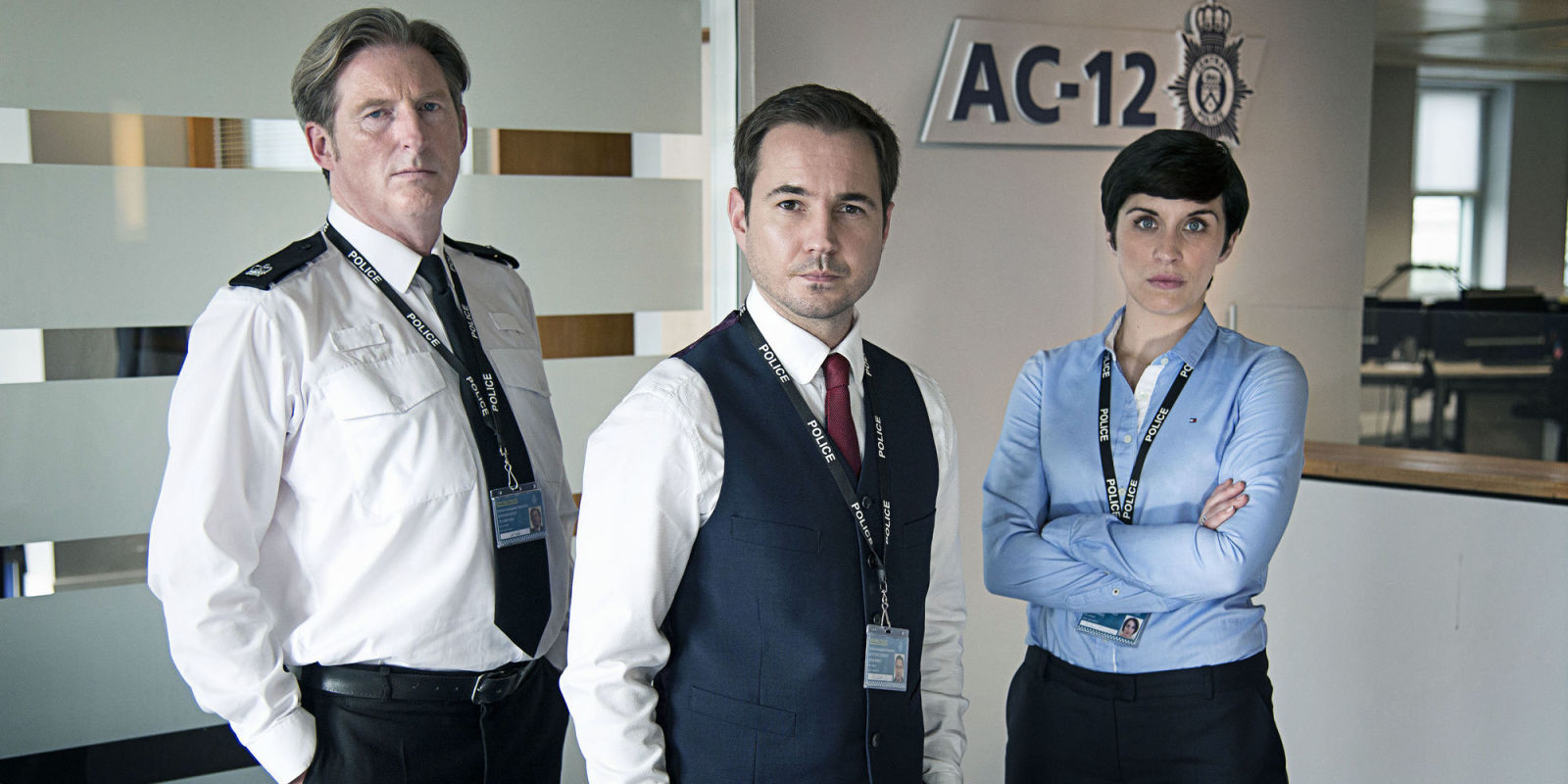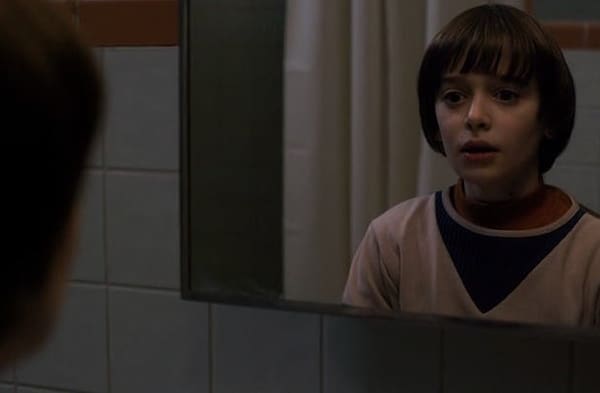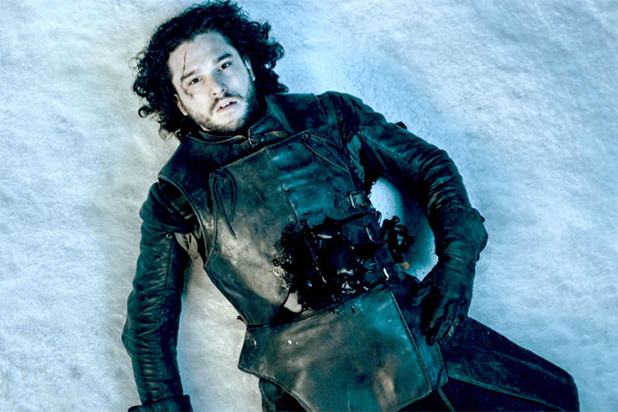
As it goes when its 90-plus outside and no body of water is cold enough to cool you off, much of my time the past few weeks has been spent on the couch, in the air conditioning, streaming television. Lately, Hannah and I were recommended the crooked-cop show, Line of Duty, and in the past couple weeks we have sped through three seasons. It’s a terrific show, the best kind of cop show, where the dialogue is smart and the plot twists are both conceivable and completely unforeseeable. As expected, we start with one episode in mind and, bleary-eyed and cursing the coming morning, finish after having watched three in a row.
But this is the standard nowadays, isn’t it? Just last week there was an op-ed in the Times about how “streaming” has changed the way we think of stories. No longer are we watching shows that close the loop in a half-hour. Instead, every episode ends in a cliffhanger, which has created the phenomenon we now know as “binge-watching.” Elissa Bassist writes this:
Cliffhangers can serve storytelling or hijack it, can reward audiences or scam them, can put us off or suck us in and possess us. The cliffhanger can even help us understand the best and worst of TV, as well as the tension between creative possibilities and commercial pleasures.
It goes like this: “Just one more episode.” Cliffhanger. “My life depends on knowing what happens. Just another.” Cliffhanger. “Last one. I swear,” having sworn it before. Cliffhanger, and canceled plans…Midbinge, “Time to watch one more?” is rhetorical. We must find out what happened; finding out becomes the priority, the plan for the day. We make time to kill time.
As she says, cliffhangers can be well-done, but more and more they’re just ploys to keep us stimulated enough to need more. It’s interesting: she says the reason cliffhangers are so successful is actually because we hate them.
Most of us can’t stand an open narrative loop, so we persevere and sprint back to our devices, again and again. Cliffhangers deny us resolution and closure so that we may never find peace, may not turn off the machine, may continually dissolve into some violent or exotic disaster involving a volcano.
The lectionary reading for this Sunday was Jesus’ parable of the wheat and the weeds, which is also all about the open narrative loop. It is all about living life among the unresolved. You know the story: A landowner plants good seed, but while everyone is gone to bed, an “enemy” plants bad seed in with the good seed. As the seeds take root and grow, the landowner’s servants begin to notice that something’s not right. There are weeds in the crop, threatening to choke out all the good stuff.
So they tell the landowner, worried and perhaps a bit ticked off that he’s made their lives so hard. “I thought you planted good stuff?” they ask. I did, the landowner replies, someone else did this. Being the good stewards they are, and trying to take their lemons and make lemonade, they offer to help resolve the issue. “Well, good thing we’re here. Want us to go out and pull the weeds?” This way the good crop can grow strong and healthy, the way it’s supposed to. Problem solved.
But strangely the landowner says “No, don’t do that.” Despite the fact that his whole crop is endangered, that he has a labor force to get out and make it happen, he tells them to do nothing. “Let it go,” he says, and his reason is: “You don’t know what is good and bad. If you try to pull the weeds, you’ll get it wrong. You’ll pull up the wheat, too, and then we’ll have an even bigger problem. No, leave it alone and don’t try to intervene. When it all grows up, I will do the sorting. Leave it to me. When it is harvest time, I will separate the good and the bad.”
It’s obvious who the God character is in the story, but it is strange that he is so passive. And the servants are left to sit there, not able to do the job they think would actually help a whole hell of a lot. I’m thinking, if I am one of those servants, that I would hate waking up every morning, walking through those fields, covered in weeds, not as productive as they should be, not growing as tall as they could be growing, not even certain the wheat is going to make it in the end. I can imagine walking through those fields and wondering to myself, “What does this jerk know anyway? If he’s really here, if he really cares, why is he letting this go unresolved?”
But this, after all, really is the way life operates much of the time. At least this is the world I am walking through most mornings: a world rife with problems, where answers either don’t seem readily available or are very readily available (are actually, annoyingly, staring the problem right in the face) but are never used. And the problems run the gamut: they’re the systemic, social justice problems, the interpersonal, relationship problems, the inner-personal problems we have. There are all these problems in life, all begging for resolution, and it’s easy to walk through the world as if God doesn’t even exist. We ask, “God, are you really here? And if you are, why are you silent? Why is nothing changing?”
It was no coincidence that the other New Testament passage from Sunday’s Lectionary was Romans 8, where Paul so astutely describes this frustration: “We know that the whole creation has been groaning until now; and not only the creation, but we ourselves, who have the first fruits of the Spirit, groan inwardly while we wait…” Our faith, at least as Paul describes, does not promise to take us from the cliff’s edge. We, too, are left wondering, still waiting to see what happens next.
The wheat-and-weeds parable, though, not only gives us no answers in this regard, it also tells us it is not our job to intervene. And this, to me, is the most offensive portion of the parable: God more or less says to his servants, “Your logic is faulty when it comes to solutions.” You are unable to distinguish between what’s good and what’s bad, what’s right and what’s wrong. You think you are helping, when you are actually hurting. And, on the flip side, the very thing that will bring restitution is the thing you just can’t look at, the thing that is so ugly, so bad, that you would never choose to go there.
The major reason that God tells his servants that a “resolution will not come from you” is because we are sinners, which means that we, too, are a mixture of good seed and bad. We may think you have a good handle on what the world needs, what would fix a major problem in your son’s life, or your coworker’s or your own, but generally speaking, we are prone to miss the point. We have a code error inside us which makes us prone to make the wrong choices. I’m reminded of Francis Spufford’s HPtFtU equation:
We are creatures who don’t get to decide what we are, whose natures are always partly hidden from our conscious understanding, who always pull several ways at once…Wherever the line is drawn between acceptable and unacceptable, between kind and cruel, between clean and dirty, we’re always going to be voting on both sides of it, despite ourselves.
In other words, when it comes down to separating wheat from weed, you are not the man or woman for the job. You cannot solve the world’s problems, you cannot even solve your own problems, because you are a part of the problem. Any weed-pulling you do in your life out there is going to be prone to the same weediness that dwells right here.
So, we are left with a world (and a self) that is riddled with unresolved conflict, completely suffused with good and evil, neither of which we can ever truly distinguish. Jesus’ parable says wait. Do nothing. Leave it to me. Take it on faith that I am doing something. Our hope lies in the good news that God will do something.
And, in the Romans 8 passage, Paul describes a world living in the hope that Jesus Christ did do something. The cross, Paul says, was God signing our adoption papers. In the blood of Christ, we are all made sons and daughters. It is God’s promise to rectify everything, to make everything right, the clear the weeds in the world and in ourselves.
Except Paul doesn’t say that it looks much different right now. In fact, on the surface, things look basically the same: the world is still groaning, it is still rife with cliffhangers, and still grants us few solutions. But Paul doesn’t seem to think that clarity is something to be concerned with. Our hope, he argues, is invisible. “Who hopes in what they can see?” he says. We wait to be taken to our new home.
In trying to think about what on earth this looks like, the image that kept coming to mind was my friend Donte. Donte was in the Regional Jail two years ago when our church started our jail ministry, and since then, he has been moved from prison to prison to finish his sentence. While he was in our local jail, though, the jail ministers here saw Donte once a week and a lot of us got really close with him. He has told us time and again that this church–that he’s actually never been to, never even really seen–is the family he never really had. He’s said over and over that when he gets out Christ Church is going to be his home.
As for now, he is in a prison over five hours away. He will be there for a while. He has not seen any of his Christ Church friends in about a year, and besides the occasional letter or book to read, he does not hear from us. He spends 21 hours a day in his cell, and as you might guess, he says the community in his current situation is not the kind you necessarily want to write home about. As for “resolving” anything, good luck with that. Donte has a hard time getting his eyes checked or his mail mailed.
He calls the church office all the time, Lyn knows his number by heart at this point. But the last time I had the chance to speak to Donte, I was so frustrated by his situation, his inability to change anything in his situation, that I asked him, “Doesn’t it ever get to you, aren’t you mad at God? It’s okay if you are!”
Donte corrected me quickly. “First of all, man, I got myself here. So, no, I’m not mad at God. And secondly, while I do get discouraged, it is so good to know where I am headed. God has given me a family! You just better tell everyone at Christ Church that their long lost brother is coming!”
Of course, anyone who’s been going to any church, ever, knows that it will not be the coming of the Kingdom. But Donte’s hope is such a powerful image of the promise given us in the midst of all our unresolved conflicts. We wait in hope for God’s resolution, not our own. It is a promise signed and sealed in the cross of Christ, that we are adopted into his family as sons and daughters. And that all will be mended, more than we could ever imagine or believe.

COMMENTS
7 responses to “When God Leaves It Unresolved”
Leave a Reply

















This is great, Ethan. This is the everyday stuff of the gospel. (Have you watched ‘Rectify’ yet?)
This is SO good, Ethan. Romans 8. Maybe the greatest chapter in the Bible. At least I come to rest there again and again.
This: “[W]hen it comes down to separating wheat from weed, you are not the man or woman for the job. You cannot solve the world’s problems, you cannot even solve your own problems, because you are a part of the problem.”
Amen
Thanks to this post, I just lost a week of my life to binging all four seasons of Line of Duty. I can’t remember ever being so “hooked” on a show before!
Holy smokes Ethan, such a thunderbolt of pastoral wisdom/comfort. I may have to read this every day. In between episodes of Line of Duty, that is (you weren’t lying!).